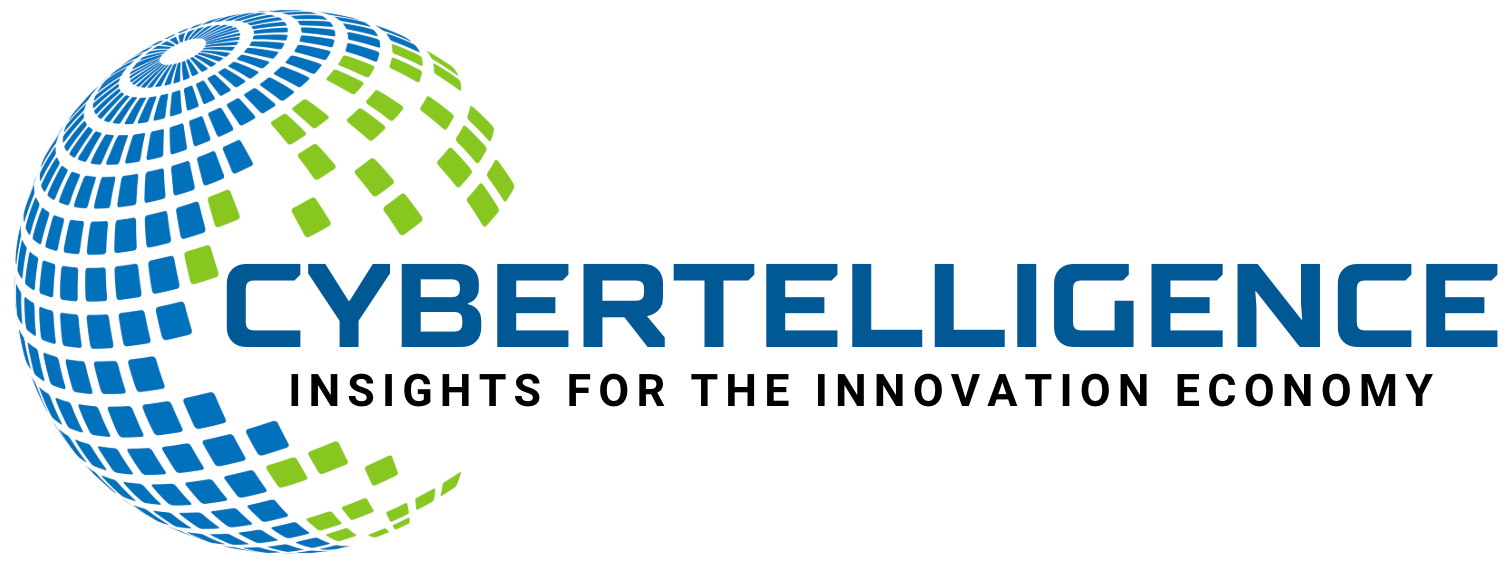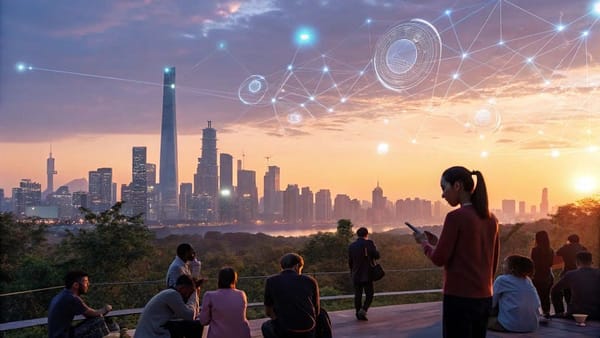Decentralized AGI: The Path to a Benevolent and Inclusive Future
Artificial General Intelligence (AGI) promises to transform our world in ways we can barely imagine. Yet, as this powerful technology…

Artificial General Intelligence (AGI) promises to transform our world in ways we can barely imagine. Yet, as this powerful technology develops, a crucial question arises: how can we ensure that AGI benefits everyone, rather than just a few large tech companies or governments? In exploring this challenge, we dive into the insights of Dr. Ben Goertzel, a pioneer who literally coined the term AGI and has spent decades thinking about its implications.
Our journey toward decentralized AGI is not just a technical pursuit; it’s a collective endeavor that involves ethical choices, geopolitical risks, and opportunities for humanity. Together, we explore what AGI really means, why decentralization is key, and how we can shape a future where AGI serves broad human benefit.
Table of Contents
- What Is AGI and Why Does It Matter?
- The Importance of Decentralized AGI
- The Race to AGI and Its Global Impact
- Real-World Benefits of AGI: Education and Longevity
- Empowering Everyone to Shape the Future of AGI
- Conclusion: The Road Ahead for Decentralized AGI
- FAQ: Understanding Decentralized AGI
What Is AGI and Why Does It Matter?
Artificial General Intelligence refers to AI systems that can understand, learn, and apply knowledge across a wide range of tasks — much like humans do. Unlike today’s narrow AI, which excels at specific functions, AGI would be capable of generalizing beyond its programming and training. Dr. Goertzel explains that the term AGI has evolved over decades and remains somewhat vague, much like concepts such as beauty or intelligence.
Mathematically, AGI can be thought of as the ability to achieve arbitrary goals across all possible environments. Interestingly, this view shows that intelligence exists on a spectrum — there is no strict dividing line between intelligent and non-intelligent systems. Humans themselves are not the pinnacle of general intelligence but rather represent a critical threshold: the minimum intelligence needed to create superintelligent machines.
The Importance of Decentralized AGI
One of the biggest risks we face today is the concentration of AGI development within a handful of large corporations or governments. Dr. Goertzel warns that if one entity controls AGI, it could lead to geopolitical instability or an “AGI arms race,” where nations rush to dominate with powerful AI technologies.
Decentralized AGI offers a hopeful alternative. By building AGI on open-source, decentralized networks, controlled by a broad community of developers, researchers, and compute owners, we can reduce risks and increase the chances that AGI will be used for the common good. This approach aligns with the decentralized nature of the Internet itself, which is based on protocols rather than centralized platforms.
Decentralization isn’t just a technical design choice — it’s a way to democratize the incredible power of AGI and prevent dangerous monopolies or military dominance.
The Race to AGI and Its Global Impact
Big tech companies and governments worldwide are investing billions to reach AGI first. But what happens if one company or country crosses the threshold before others? The answer depends on how quickly AGI can evolve into superintelligence — a concept called the “time to fume.”
- If the transition from human-level AGI to superintelligence happens quickly (in months), whoever reaches AGI first could dominate the future.
- If it takes years, the advantage may be less significant, but the geopolitical chaos in the interim could be severe.
Dr. Goertzel is optimistic that the first superintelligence will likely be benevolent and compassionate, benefiting humanity generously. However, the period between the first AGI and a truly beneficial superintelligence could be messy, especially if controlled by competing military or corporate powers.
This uncertainty underscores why decentralized AGI development is so vital — it can help ensure more people have a stake in the technology and reduce the risks of catastrophic misuse.
Real-World Benefits of AGI: Education and Longevity
Beyond the risks, AGI holds incredible promise for improving our daily lives. For example, in education, AI tools can provide personalized learning experiences. Dr. Goertzel shares how his young son, who has dyslexia, benefits from AI-powered speech-to-text tools that enable him to explore complex questions and learn independently despite reading challenges.
In medicine, AGI can accelerate research into new therapies and longevity treatments. While large language models (LLMs) like ChatGPT help with data normalization and analysis, they are just one part of a broader AI toolkit that includes machine reasoning and evolutionary learning.
These technologies can sift through millions of biological datasets, standardize them, and help researchers generate new hypotheses faster than ever before. The same tools, however, also raise concerns about privacy and surveillance, as intelligence agencies could use them to analyze personal data globally.
Empowering Everyone to Shape the Future of AGI
One of the most powerful messages is that the creation of AGI is not limited to a few elite scientists or companies. It is a global, collective effort involving people from all walks of life. From startups disrupting AI training costs to developers in Ethiopia building advanced tools, many contributors are shaping this future.
We all have a role — whether through developing AI, sharing truthful information, or educating others. No one truly controls the path of AGI; it is open-ended and evolving. This uncertainty can be both exciting and scary, but it means every voice and action matters.
Dr. Goertzel encourages us to feel empowered as participants in this historic journey. Our efforts today could be the tipping point toward a beneficial singularity that uplifts humanity.
Conclusion: The Road Ahead for Decentralized AGI
Decentralized AGI represents our best hope for creating a future where artificial general intelligence serves everyone, not just a privileged few. By embracing openness, collaboration, and ethical responsibility, we can bias the odds toward AGI that enhances human well-being, drives scientific breakthroughs, and fosters equitable progress.
We are taking leaps into the unknown without guarantees — just as humanity did with agriculture, the industrial revolution, and the computer age. But with thoughtful design and global participation, we can steer AGI toward a vision of shared prosperity and longevity.
Let’s remember: the singularity is not controlled by a select few. It is a collective, unfolding story, and each of us can contribute to writing its next chapter.
FAQ: Understanding Decentralized AGI
What is decentralized AGI?
Decentralized AGI is the development of artificial general intelligence through distributed networks that are open and controlled by many participants, rather than by a single company or government. This approach aims to reduce risks associated with monopolization and misuse.
Why is decentralization important for AGI?
Decentralization democratizes access and control, making it less likely that AGI will be used for narrow military or corporate interests. It fosters transparency, collaboration, and broader human benefit.
How soon might superintelligent AI emerge after AGI?
The timeline is uncertain and depends on the “time to fume” — how quickly an AGI can improve itself to become superintelligent. Estimates range from months to years, affecting how much advantage the first AGI creator might have.
Can current AI systems like ChatGPT be considered AGI?
Not exactly. Large language models have broad knowledge and can perform many tasks but lack the deep generalization and imaginative reasoning abilities that characterize human-level AGI.
How can individuals contribute to the future of AGI?
Anyone can participate by learning about AI, creating honest content, developing tools, or supporting ethical AI projects. Collective awareness and action shape the trajectory of AGI development.
This article is based on comprehensive research derived in part from the referenced video Ep 564: Dr. Ben Goertzel: The Road to Creating Benevolent Decentralized AGI




